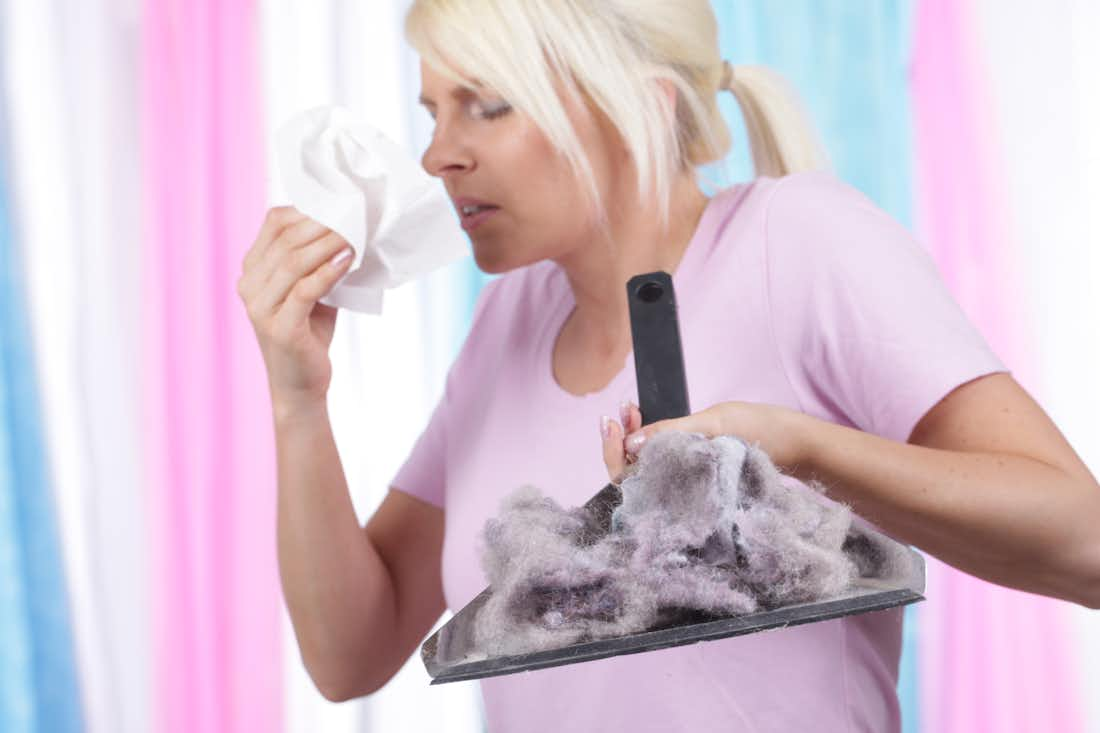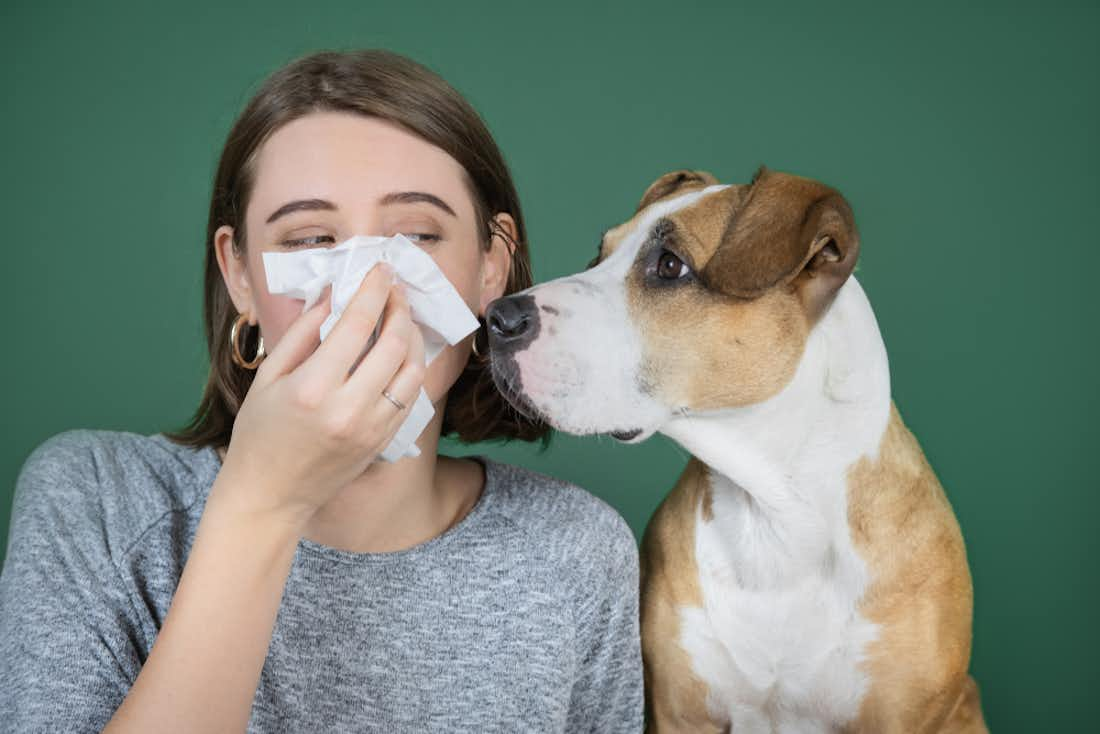Sep 29, 2021
How To Get Rid of Allergies
4 minute read
Allergies can be a pain for anyone who suffers from them. Sneezing, runny nose, watery eyes, congestion, excess mucus, sore throat, swelling, inflammation, allergic reactions, and itching all day and night is no fun, and it’s even worse when you can’t seem to find any relief. Thankfully, the expert allergists at Cleared are here to help you find the relief that you need from your allergy symptoms!
At Cleared, we specialize in treating long-term causes of seasonal allergies, no matter what your specific triggers are. We offer treatment plans for allergies to tackle grass pollen, ragweed pollen, mold, dust mites, your pet's dander mold spores., We’ll work hard to make sure your plan works for you!
Want to learn more about what Cleared can do for you? Stick around until the end of this article for more info.
What’s Causing Your Allergies?
Allergy symptoms stem from what is essentially a mistake on the part of your immune system. When exposed to a particular trigger, known as an allergen, your immune system reacts negatively (by releasing histamines), causing the symptoms you know all too well.
While another person’s immune system might not be as sensitive to these allergens, yours releases histamine in response to exposure to them. Histamine can cause reactions like rashes, hives, postnasal drip, itchiness, and other uncomfortable symptoms.
Some of the most common allergy triggers are pollen, animal fur and dander, dust mites, and mold. In addition, many people are allergic to certain foods and medications. Unlike airborne allergens, these triggers usually only cause symptoms when a person eats food or takes an allergic medication.
How To Find Out the Root Cause of Your Symptoms
If you’re not sure where your allergy symptoms are coming from, the best first step to take is to get tested. Cleared offers in-person and at-home allergy testing to get you on the path to a symptom-free life, and our tests are super quick and super simple.
One form of allergy testing involves the careful analysis of a sample of your blood. This analysis is performed by experts in a lab, who then send their data to allergists for review. At Cleared, your allergist will assess the data from your blood test to determine what’s causing your symptoms.
Once you have a diagnosis, your allergist can start setting you up with an effective treatment plan, including different medicines (like Cetirizine), nasal sprays, and natural remedies (like our lozenges or using a HEPA filter). Then, you’re on your way to no more allergies!
Allergy Treatments That Actually Work
At Cleared, our allergists don’t follow a one-pill-fits-all treatment philosophy. Instead, they recognize that you and your allergies are unique and that you deserve special care and attention!
With the help of your allergy test results, your allergist will create a treatment plan with a combination of the following treatments.
Immunotherapy: Fighting Allergies in the Long-Term
Immunotherapy is one of the most effective treatments for allergies out there. This treatment comes in two forms – sublingual and subcutaneous. Sublingual immunotherapy treatments are administered orally, while subcutaneous treatments are allergy shots. At Cleared, we treat our patients with the help of sublingual immunotherapy.
So, what is immunotherapy? This allergy treatment method actually exposes your immune system to the very allergens that are causing your symptoms – but in very, very small doses. As your immune system gets used to these allergens, your symptoms can start to get less and less severe, and they may even go away completely.
Immunotherapy is a long-term treatment strategy for allergies. That means it can take some time before you can stop taking medication. However, the results for this treatment method can be incredible and long-lasting, sometimes even eliminating the need for other allergy medications for daily relief.
Cleared offers immunotherapy treatments designed to target allergies to ragweed, grass pollen, and dust mites. Depending on your allergy triggers, your allergist will determine which immunotherapy medication is best for you. To learn more about immunotherapy, click here.
Relief Medications: Say Goodbye to All Those Allergy Symptoms
Relief medications are designed to target your typical allergy symptoms. These medications can be taken alongside immunotherapy and daily support treatments, and they may be either prescription-only or over-the-counter. There are several different types of relief medications, including antihistamines and anti-inflammatories, and your allergist will help you choose one based on your symptoms.
To learn more about relief medications, click here.
Tips for an Allergy-Free Life
Sticking with a hard-hitting allergy treatment plan is the best way to keep your symptoms from controlling your life. However, there’s plenty more you can do to build up your resistance to allergy symptoms. Keep these tips in mind as you embark on your journey to an allergy-free life!
Stay Inside When Winds are Strong
If you tend to have bad allergy symptoms on windy days, you’re likely having a reaction to airborne allergens. These allergy triggers, including ragweed pollen, tree pollen, and more, can blow for miles, causing symptoms even if they don’t grow where you live. If you’re suffering from seasonal allergies and it’s windy, stay indoors!
Get Plenty of Sleep
A good night’s sleep is one of the best defenses against everyday allergy symptoms. When you’re sleep-deprived, your immune system isn’t as strong, which can make you more vulnerable to the effects of allergens. Aim for at least 8 hours each night!
Make Your House Allergen-Free
It’s not fun to think about, but your home might be full of allergens that worsen your symptoms. One of the most important aspects of reducing your exposure to allergens is keeping your house clean and maintaining an environment where pollen, dust mites, and other common triggers won’t be able to thrive. Routine cleaning, replacing air filters when necessary, and even using a dehumidifier can all be helpful anti-allergy strategies at home.
Want To Learn More?
Are you tired of suffering from seasonal allergies? We’re here to help. To learn more about what Cleared can do to help you conquer your allergies, click here.
Sources:
Allergies - Symptoms and causes | Mayo Clinic
National Allergy Forecast & Info About Allergies | Pollen
reasons why you should aim for 8 hours of sleep tonight | Globalnews.ca
Authors

Dr. Payel Gupta
Medically reviewed by Dr. Payel Gupta



